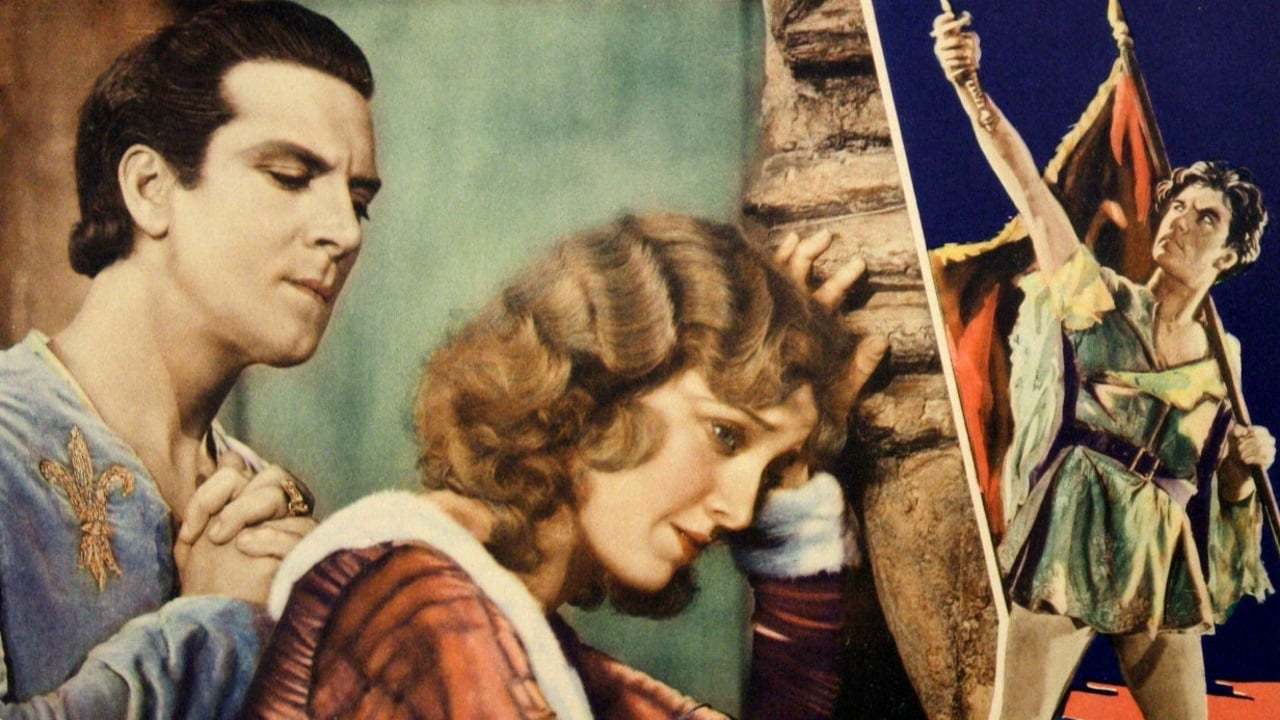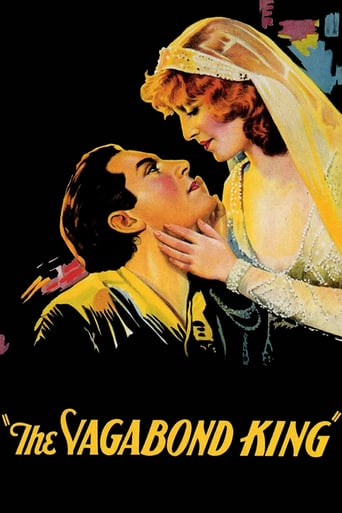Plantiana
Yawn. Poorly Filmed Snooze Fest.
ChanFamous
I wanted to like it more than I actually did... But much of the humor totally escaped me and I walked out only mildly impressed.
Siflutter
It's easily one of the freshest, sharpest and most enjoyable films of this year.
Hadrina
The movie's neither hopeful in contrived ways, nor hopeless in different contrived ways. Somehow it manages to be wonderful
mark.waltz
Only a year after "The Love Parade", Paramount failed to repeat the success with this film version of the successful Rudolph Friml operetta. Whether a hit at the box office or not, it fails to stand the test of time when compared to the Jeanette MacDonald/Maurice Chevalier operettas (and even MacDonald's others with different leading men) because of poor direction and an even worse performance by its leading man, Broadway tenor Dennis King.I have to honesty tell movie musical fans to avoid this one first and go straight to the 1956 Kathryn Grayson/Oreste color remake, or even the 1938 non-musical "If I Were King" with Ronald Colman and Frances Dee. Made to look like Svengali or Rasputin in his peasant gear, King frightfully overacts, and in close-ups, his profile is up there with the ugly hag in Disney's "Snow White and the Seven Dwarfs". The score is pleasantly sung, but even MacDonald later referred to King's big love song, "Only a Rose" as "Only a Nose". The second lead is played by Lillian Roth who was a comic scene stealer in "The Love Parade" and plays basically the same role that Myrna Loy did in the original film version of "The Desert Song" the year before and in the same part that Rita Moreno would essay 26 years later. She is pretty much wasted. The villains are all one-note, and MacDonald is lacking the iron butterfly feistiness that would make her a major success in the series of films she did with Chevalier and much later at MGM with Nelson Eddy. The Friml songs are good, but not as memorable as his score for "Rose Marie" which MacDonald of course did only six years later with better success.
bkoganbing
The chance to see a major Broadway star recreate his role for the screen is an opportunity not to be missed. It's sad though that Dennis King was not given proper direction for the screen in his performance.Of course he and Jeanette MacDonald sing the Rudolf Friml-Brian Hooker songs beautifully. We even get a bonus of Lillian Roth singing the Waltz Hugette which was a big hit for her. If you remember in the biographical film, I'll Cry Tomorrow, Susan Hayward as Roth sings that song among others identified with Roth on the soundtrack. Probably a lot more of you remember the straight dramatic version of Justin Huntly McCarthy's play If I Were King that starred Ronald Colman eight years later. Seeing both I know where all the songs are, it's like seeing Pygmalion after you've seen My Fair Lady. The Colman version had a much lighter touch to it though. Dennis King played it as a stalwart hero, a little less of the rogue that Colman was. O.P. Heggie was also a far more serious Louis XI than Basil Rathbone was, though I saw aspects in Heggie's performance that Rathbone no doubt imitated.Probably The Vagabond King was done just a tad too early. The early sound recording techniques don't help and in a few years King would have learned to dial it down a bit for the screen. Take a look at his dramatic non-singing role as the country vicar in Between Two Worlds.King was Rudolf Friml's favorite Broadway leading man. He was the original Mountie in Rose Marie for those of you thought the part originated with Nelson Eddy and besides The Vagabond King he also starred as D'Artagnan in The Three Musketeers. For some reason that operetta was never made into a film and I wish it had. Even Dennis King playing it like he would for the stage would have been better than that awful thing with Don Ameche and the Ritz Brothers.The Vagabond King is certainly a film for Jeanette's legion of fans and it is a chance to see a Broadway star recreate his role for the screen despite the flaws.
paul-2208
I have seen The Vagabond King (1930) twice on the big screen, in the restored two-strip Technicolor version and it is gorgeous. It is like a Rembrandt painting which moves, with lots of dark, muted colors which evoke the medieval setting. The smaller size of the film studio orchestras at this time (compared with symphonic proportions later on), and the stage-bound camera-work typical of early talkies, combine with the acting style of Dennis King and the rest of the cast, to give the modern viewer a sense of seeing this great musical on stage. In fact, a film such as this, I believe ought to be compared to stage productions or other films of the period, more than to later films. Dennis King's Shakepearian delivery and legitimate baritone singing voice would seem out of place in a later film, where subtlety would reign. How fortunate, then, that we have such a fine document from the Broadway creator of the role. Jeanette MacDonald fairly glows in this, her second film, and gives a haunting delivery of Only a Rose. As a fan of early stage and film musicals and the 1920s era in general, I highly recommend this film in the color version.
John Esche
Considering the major names involved (in addition to the performers, it was an early screen adaptation from Herman J.Mankiewicz!) in this fine reflection of the popular 1925 operetta, it's high time we had a good Technicolor restoration done and issued on DVD.Jeanette MacDonald as the female lead is, perforce, secondary to the slightly "over the top" Dennis King recreating his starring Broadway role (511 performances at the Casino Theatre), but she gives a pure portrait of the King's niece much more honest and appealing than her later over blown "acting" in the Nelson Eddy screen operettas of the late 30's and 40's.Lillian Roth's Huguette is more throaty than many familiar with the character's beautiful Rudolf Friml music may be used to, but her acting is impeccable and quite moving. Additionally, the chance to see 20th Century Fox's first major "Charlie Chan," Swedish actor Werner Oland, in another perspective entirely as Thibault, is not to be missed for any fan of Earl Derr Biggers' famous sleuth.While, after the painful Hollywood custom, much of the rousing score has been sacrificed in the film's fast moving 104 minutes (only 100 surviving in the TV print I've seen), most of the best, "Some Day," "Only A Rose," "Huguette Waltz" and of course, "Song of the Vagabond" are here in fine form. Certainly preferable in this relatively faithful form than the bland 1956 remake. It's an exciting alternative to the fine (if music-less) 1938 Ronald Colman film drawn from The Vagabond King's source material: "If I Were King."

